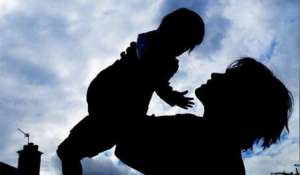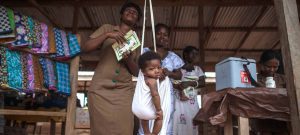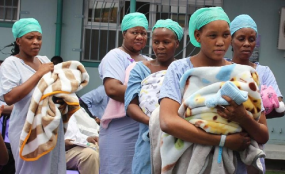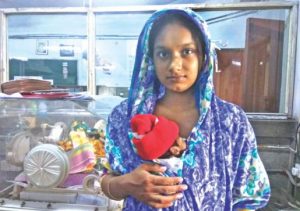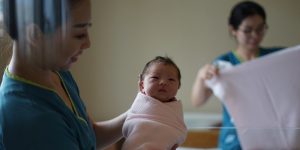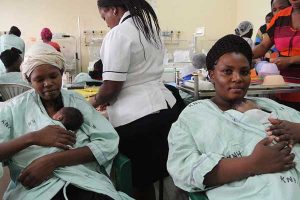WHO lays out recommendations to save newborns
According to a recent report released by WHO titled Survive and thrive: transforming care for every small and sick newborn, it is crucial for the world to transform care for every newborn baby, in order to achieve the global target of health for all. Reducing neonatal mortality to 12 per 1,000 live births and under-five … Continued
Better care, stronger laws needed to save 30 million babies on the brink of death
Nearly 30 million babies each year – nearly a quarter of the total – are born too soon, too small or become sick, requiring specialized care to survive beyond the first month of life, according to a new report by a global coalition that includes the UN Children’s Fund (UNICEF) and World Health Organization (WHO). … Continued
Every year, 30 million babies need special care to survive
New report by a global coalition that includes UNICEF and the World Health Organization highlights the challenge in reducing infant deaths the world over. Nearly 30 million babies are born too soon, too small or become sick every year and need specialized care to survive, according to a new report by a global coalition that … Continued
Poor quality of care still an issue in addressing newborns mortality
Countries with higher rates of child mortality and morbidity are especially challenged, including Tanzania. A senior official of the World Health Organization (WHO), Dr. Bernadette Daelmans, made the call on the sidelines of the 2018 Partnership for Maternal, Newborn and Child Health (PMNCH) Forum being held in New Delhi, India. Dr. Bernadette Daelmans was speaking … Continued
Namibia: 208 Babies Die At Oshakati
Forty-eight hours – that is how long most newborn babies survive at the Oshakati State Hospital in the Oshana region. At least 150 premature babies out of more than 1 000 who are either admitted or born at the Oshakati State Hospital yearly do not survive. This year alone, the hospital recorded 208 neonatal deaths … Continued
The miracle of a mother’s touch
When Shanta became pregnant for the second time, her family was elated. Two years back, the 18-year-old mother gave birth to her first child and luckily, there wasn’t any pregnancy or childbirth-related complications, despite her being underage. So, the couple from Narsingdi was looking forward to welcome the new addition to their family. Shanta was … Continued
Born Too Soon
FIGO News Between 2000 and 2016 the global neonatal mortality rate fell by 39 percent, an enormous achievement. However, there is still a long way to go. This week, world-renowned experts in gynecology and obstetrics took another step forward, meeting with international political leaders for the Birth: Clinical Challenges in Labour and Delivery Congress on … Continued
Is India’s Healthcare System Failing Premature Babies Even Before They Are Born?
An estimated 15 million babies are born too early every year, or in other words, preterm (before 37 completed weeks of gestation). That is more than 1 in 10 babies. Approximately 1 million children die each year due to complications of preterm birth. Many survivors face a lifetime of disability, including learning disabilities and visual … Continued
The key to saving preterm babies
Having served as a paediatrician for most of my adult life, including over 25 years as a perinatal/neonatal medicine specialist, I know first-hand the joy and anxiety that comes with giving birth. For first-time mothers, especially, even as they eagerly anticipate the birth of their babies, they are scared – of pain, of complications that … Continued
Would you feed your child with another woman’s breast milk?
While wet nursing is not a new phenomenon among Kenyan societies, the concept of pooling milk together in a bank is. Women from religious history would breastfeed the children of other women but this would be directly from the breast. Moses of the Bible times and Prophet Mohammed of the Quran both had wet nurses. … Continued
